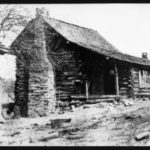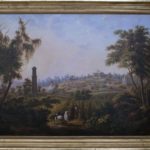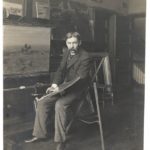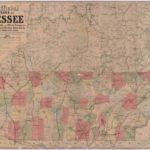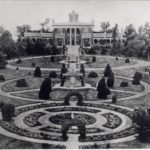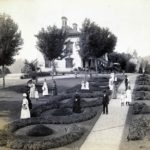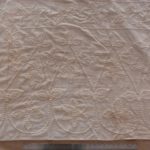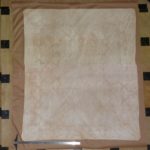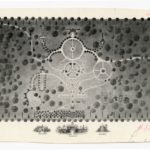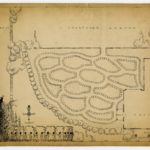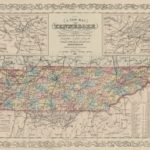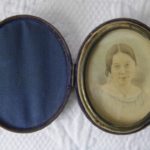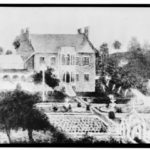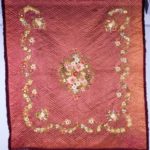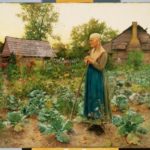Lucy Virginia Smith French

McMinnville’s Forest Home was the residence of Colonel John Hopkins French and his wife, author Lucy Virginia Smith French (1825-1881), during the last half of the 20th century. During an age when the home was one of the few domains where women had authority, Forest Home was undoubtedly important to L. Virginia, who had been forced to move out of her childhood home at an early age when her mother died and her father remarried. In the 1850s L. Virginia wrote for a number of publications, including the Louisville Journal, and published poetry and novels, so it was natural for her to keep diaries during the Civil War. Like many other Tennesseans, L. Virginia was opposed to secession but her stronger commitment to Tennessee meant that she would support the state in its decision to leave the Union.
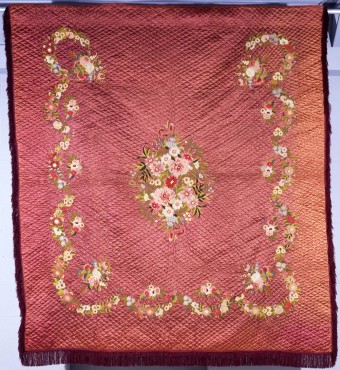
Lucy Virginia Smith French.
Forest Home Quilt. ca. 1855.
Tennessee State Museum.
View Object Details
Her journals, written first at Forest Home and later at Beersheba Springs, paint a vivid picture of L. Virginia’s struggle to maintain the household against raids by Confederate and Union forces. The garden, though often worked by servants or slaves, was a source of pride for women in the late 19th century, and L. Virginia vied with other McMinnville matrons to have the finest garden in the area. She found respite there, embroidering a quilt with flowers made on a length of plum-colored silk that her husband had purchased in New Orleans, where he travelled on business. As a port city, New Orleans would be a source of unusual flowers and exceptional garden design.
The flowers on L. Virginia’s quilt appear to include blue periwinkle, white daisies, red petunias, red morning glories, white primrose, red verbena and pink roses in a serpentine pattern of red, white and blue flowers. The quilt, which won two awards at an 1859 exhibition, was reported to have been used to hide silver during the Civil War.
— Celia Walker, Director of Special Projects, Vanderbilt University Libraries
Further Reading
- James A. Dillon, Distinguished Personalities of Warren County History (1800-1996) (McMinnville: Womack Publishing Co., Inc., 1996)
- Connie Lester, “Lucy Virginia French: ‘Out of the Bitterness of My Heart'” in Steven E. Woodworth, ed. The Human Tradition in The Civil War and Reconstruction (Lanham, MD: Scholarly Resources Books, Inc., 2000)
- Bets Ramsey, “Lucy Virginia Smith French” from An Enduring Legacy: Art of the Americas from Nashville Collections (Nashville: Frist Center for the Visual Arts, 2001)
- Jerry W. Smith, ed. L. Virginia French’s War Journal 1862-1865 (Wartrace, TN: Blockade Runner Inc., 2007)



